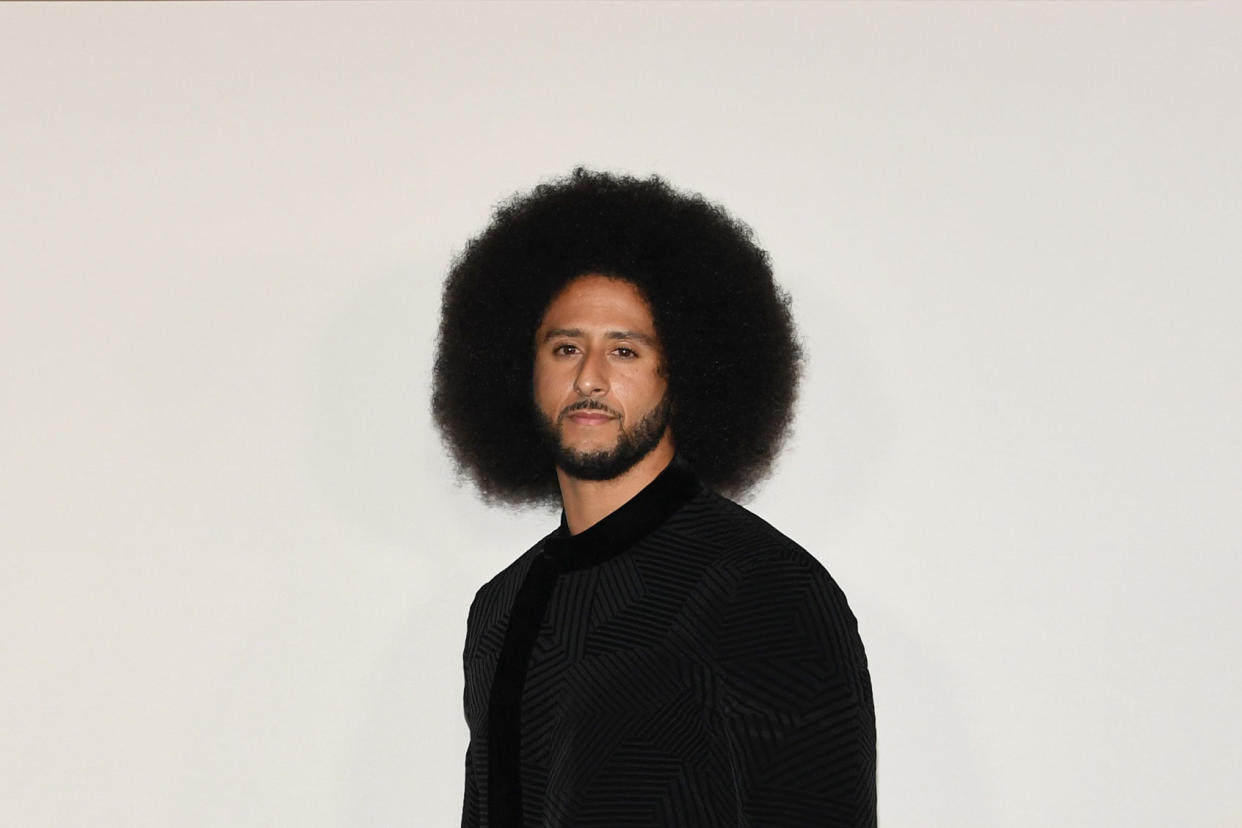In a so-called post-racial NFL, Colin Kaepernick is still seemingly shut out in new NY Jets letter

Colin Kaepernick is back — well sort of. The former 49ers quarterback-turned-overnight activist despised by Middle America and just about every racist in the county for braving and quietly exercising his First Amendment right to free speech by kneeling for racial justice during "The National Anthem" in 2016, has found his way back into the spotlight.
In a newly released letter by Kaepernick's friend rapper J.Cole on Instagram, Kaepernick asked the struggling NY Jets if he could join the team's training session this season. So it is possible for racist white America's least favorable athlete to find his way back to the game after six years absent from pro football and a grievance lawsuit that alleged the NFL was colluding against him that he settled?
The letter, addressed to the team's general manager Joe Douglas said that Kaepernick would be honored to join the team that lost their quarterback, Aaron Rodgers in a season-ending injury and has had to rely on their second QB Zach Wilson. Kaepernick said that he would "lead the practice squad" with "the sole mission of getting your defense ready each week."
Furthermore, he stated that allowing him to be a QB option would allow him "to be of great service to the team as a practice squad QB, while also giving you a low-commitment chance to assess my capabilities to help in any other capacity you may see fit."
He stressed his commitment to the sport, ready to jump back into football again. He pled his case: "Worst case scenario, you see what I have to offer and you're not that impressed. Best case scenario, you realize you have a real weapon at your disposal in the event you ever need to use it."
Following the circulation of the letter, sports critics have asked why is Kaepernick asking to be a part of a league he's called a "plantation," a league that he shunned when he was invited to training camp in 2019, a league that effectively blacklisted him from ever playing the sport again, and opened him up to backlash from bigots who only want Black athletes to keep their head down — be respectable — shut up and keep playing?
In 2016, Kaepernick took a knee for the first time. It was also the last year that America was able to finally stop the less-than-convincing show that it was in a liberal post-racial fantasy. Prior to the culture wars, before all the alleged white-collar crime and the threat of the crumbling of democracy, we lived in a seemingly post-racial America that exalted the election of the first Black president, Barack Obama, but it was all pretend. The retaliation only led us to an insurrection, impeachments, a plethora of indictments leading to the first-ever presidential mug shot and a deeply bitterly divided public.
The reality check for Kaepernick is that we do not live in this post-racial utopia ready to accept him again. Why he thought he would receive another shot at the NFL is probably linked to blind optimism that things have changed and his desire to play the game he loves again. I hate to be this cynical but I don't believe things have gotten better.
In a more equitable, fair and just world, someone like Kaepernick could sue the NFL, call the league all the names in the book and still be accepted back because we should not fear retaliation for speaking truth to power. But we don't live in that world, and if we've learned any lessons from the last few years as close as we were about having authentic conversations about systemic racism in this country during the protests, businesses took it as an opportunity to begin selling the idea of diversity and inclusion as a product. And the NFL is no different. Ultimately, it is a business looking to maximize its profits off its players and deemed Kaepernick no longer sellable when he took that knee and upset the conservative business and political interests in this country.
The league is still riddled with gaping racial disparities from the lack of Black coaches following a racial discrimination lawsuit alleging discriminatory hiring practices among team owners. Other discrimination lawsuits the league is facing are a result of using "race-norming" or racially discriminatory criteria to evaluate former players with neurocognitive impairments, and a former Black reporter alleging his NFL Network contract was not renewed because he spoke out against the league's lack of diversity.
There's no question that Kaepernick's mistreatment has opened the floodgates to other athletes finally speaking up about the abuse they have faced as well. My question is why would he want to subject himself to that again when nothing on its face – not to mention what's underneath that – has changed about the league? He deserves his fair shot at playing pro football again after all the vitriol and abuse he's been through . . . but is it worth it?
